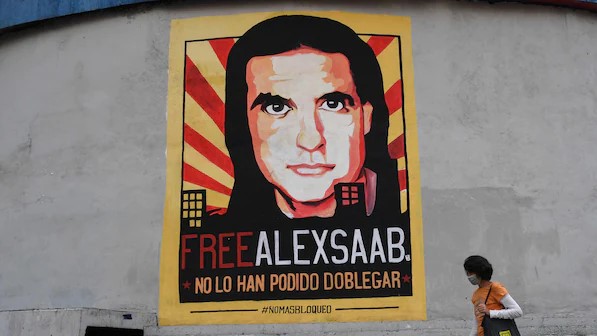
Today, six Citgo Petroleum executives – five U.S. citizens and a permanent resident – are spending a second day in one of Venezuela’s most notorious political prisons. To call them prisoners, though, would be misleading. José Ángel Pereira, Gustavo Cárdenas, Jorge Toledo, José Luis Zambrano, Tomeu Vadell and Alirio José Zambrano are all hostages, taken by the Venezuelan regime in retaliation for U.S. law enforcement actions against the regime’s top financier, Alex Saab, who has just been extradited to the United States from Cape Verde following a 16-month legal fight.
By The Washington Post – Francisco Toro
Oct 18, 2021
Now, a normal government – upon finding that a high-profile businessman with whom it dealt has been arrested on charges of orchestrating a massive worldwide money laundering scheme to profit from the country’s economic and humanitarian crisis – might have been embarrassed. But Venezuela’s is not a normal government.
So when Saab, 49 – a Colombian businessman at the core of a dazzling array of President Nicolás Maduro’s financing shenanigans – was arrested in the small African archipelago nation during a stop to refuel on the way to Iran on a U.S. Justice Department extradition warrant in June last year, the Venezuelan government did none of the careful distancing the usual rules of international decorum demand.
Saab was just too important to the regime, the information he handled too explosive. And so, rather than seek distance, the Maduro regime went into a diplomatic frenzy, trying to rebrand their moneyman as a prisoner of conscience and agitating loudly for his immediate release.
Under the banner of #FreeAlexSaab, hundreds of regime supporters (and thousands of regime bots) took to social media to demand their hero’s liberation. Billboards with Saab’s face propped up along Venezuela’s highways, as the regime mobilized all its resources to pressure Cape Verde to refuse the United States’s extradition request.
Suddenly, Cape Verde was a diplomatic priority for Venezuela. Venezuelan official media went out of its way to congratulate the country on its independence day. Behind the scenes, Venezuelan envoys dashed up to Praia, the Cape Verdean capital, with offers of bilateral assistance. For reasons best known to Maduro himself, preventing Saab’s extradition had become a top national security concern for Venezuela.
Much more about those reasons will become clear during Saab’s actual trial, to be held in a Florida federal district courtroom. In 2019, the Trump administration sanctioned Saab for allegedly orchestrating a vast corruption network that enabled Maduro and his regime to profit from a state-run food program amid widespread hunger in the oil-rich country. Saab has denied the charges as “politically motivated.”
Given the strength of Venezuela’s mobilization on his behalf, it’s easy to guess that if Saab chooses to cooperate with the Justice Department, most of Maduro’s financial secrets will be laid bare. Saab became infamous due to accusations of corruption surrounding the sprawling program to subsidize imports of food, but his name has been linked to deals in the oil industry as well. Wherever the Maduro regime was moving big sums of cash, Saab’s name was never far from view.
…
Read More: The Washington Post – A businessman with close ties to Maduro is in U.S. custody. Venezuela’s anger explains why this matters
…

